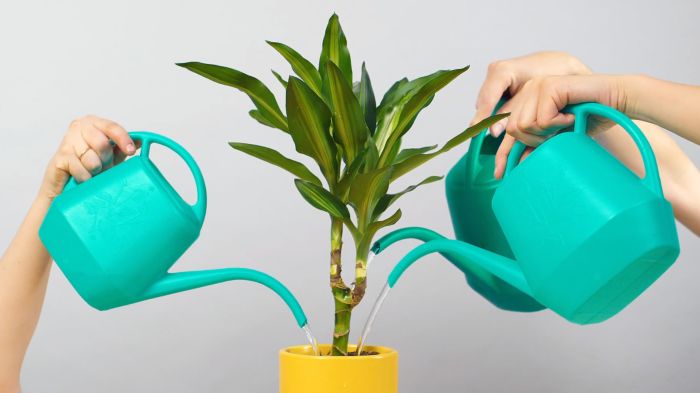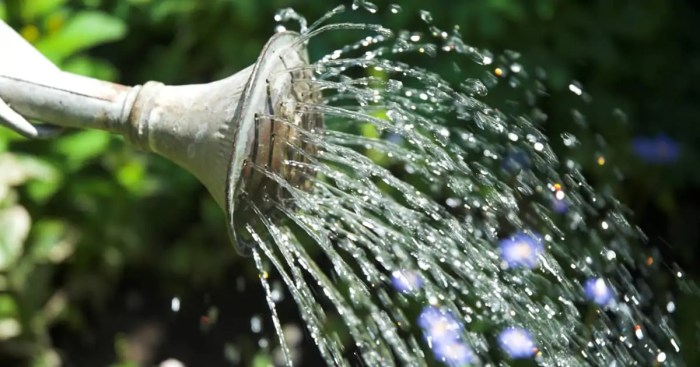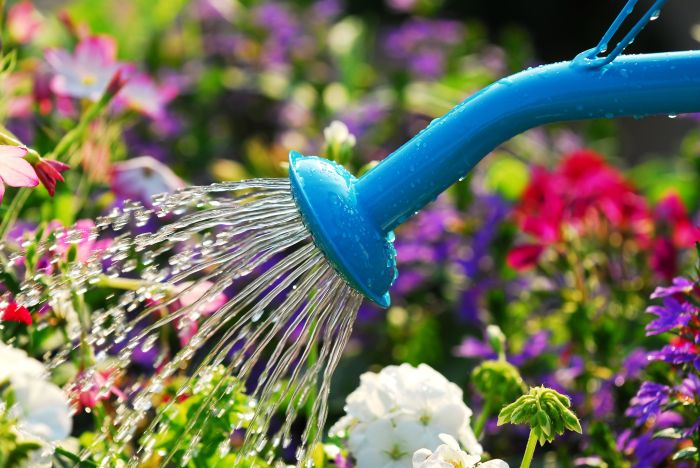Can You Use Pool Water to Water Plants?
Can You Use Pool Water to Water Plants?

Source: sanity.io
Can you use pool water to water plants – Using pool water to irrigate your garden might seem like a convenient way to recycle water, but it’s crucial to understand the potential consequences before doing so. Pool water contains a unique chemical cocktail that can significantly impact plant health and soil quality. This article explores the chemical composition of pool water, its effects on soil and plants, and viable alternatives for garden irrigation.
Chemical Composition of Pool Water and its Effects on Plants, Can you use pool water to water plants
Typical pool water contains chlorine, algaecides, and other chemicals to maintain cleanliness and prevent algae growth. These substances, while beneficial for pool hygiene, can be detrimental to plants. High chlorine concentrations can cause chlorosis (yellowing of leaves), leaf burn, and stunted growth. Algaecides, often containing copper or other metals, can accumulate in the soil, potentially reaching toxic levels for plants.
The pH level of pool water also matters; significant deviations from the ideal range for plants can hinder nutrient uptake.
Using pool water on plants is generally discouraged due to high chlorine levels. However, if you’re considering alternative solutions to improve soil pH, you might wonder about other options, such as exploring whether is vinegar water good for plants. Ultimately, both pool water and vinegar present potential risks, so sticking to clean, chlorine-free water is best for healthy plant growth.
| Component | Typical Pool Water | Ideal Irrigation Water | Effect on Plants |
|---|---|---|---|
| Chlorine | 1-3 ppm | 0 ppm | Leaf burn, chlorosis |
| pH | 7.2-7.8 | 6.0-7.0 | Nutrient uptake issues |
| Algaecides | Variable | 0 ppm | Toxicity, metal accumulation |
| Salinity | Higher than ideal | Low | Reduced water uptake |
Long-term use of chlorinated pool water can lead to salt buildup in the soil, impacting soil structure and plant health. The chlorine can also disrupt the beneficial soil microbiome, reducing its ability to support plant growth.
Effects of Pool Water on Soil

Source: southernlivingplants.com
High salinity from pool water can impede soil drainage, creating waterlogged conditions that suffocate plant roots. Repeated applications can alter soil pH, making it less suitable for many plants. The chlorine and other chemicals can negatively affect soil microorganisms essential for nutrient cycling and disease suppression.A controlled experiment could compare plant growth in pots with soil watered with pool water against a control group using regular tap water.
Parameters like plant height, leaf area, and overall health could be measured over several weeks to quantify the effects.
Plant Tolerance to Pool Water
Some plants are more tolerant to the harsh chemicals in pool water than others. For instance, drought-tolerant plants might exhibit greater resilience. However, most common garden plants are sensitive to chlorine and other pool chemicals.
- Tolerant Plants (relatively): Certain succulents, some grasses.
- Sensitive Plants: Most vegetables, flowering annuals, delicate herbs.
Visible symptoms of chlorine damage can include browning or yellowing leaf tips, wilting, and stunted growth. Severe cases can lead to leaf drop and plant death.
Alternatives to Pool Water for Irrigation

Source: horvatnursery.com
Rainwater harvesting and greywater recycling offer environmentally friendly and cost-effective alternatives. Rainwater, naturally free of harmful chemicals, provides excellent irrigation. Greywater, after appropriate treatment, can also be a valuable resource.
| Irrigation Method | Cost-Effectiveness | Environmental Impact |
|---|---|---|
| Rainwater Harvesting | Low (initial investment for collection system) | Very low |
| Greywater Recycling | Moderate (initial investment for filtration system) | Low to moderate (depending on treatment) |
| Pool Water | Very low (water is already available) | High (chemical damage to plants and soil) |
Rainwater collection involves setting up a system of gutters, downspouts, and storage tanks. Greywater systems require filtration to remove solids and reduce pathogens before use for irrigation.
Visual Representation of Pool Water Effects
Plants suffering from chlorine burn often exhibit scorched leaf margins, turning brown and crispy. The leaves may become brittle and fall prematurely. Severe cases show overall wilting and stunted growth. Soil watered with pool water may appear saltier, with a crusty surface and reduced water retention. The color might be slightly altered, and the overall texture will feel less fluffy compared to soil watered with fresh water.
Question Bank
Can I use pool water on all plants?
No, different plants have varying tolerances to chlorine and other pool chemicals. Some are more sensitive than others.
How can I tell if my plants are suffering from pool water damage?
Look for signs like leaf browning, wilting, and stunted growth. The specific symptoms can vary depending on the plant species.
What’s the best way to neutralize pool water before using it on plants?
Diluting pool water significantly with fresh water can help reduce the concentration of harmful chemicals. However, this is not always sufficient to prevent damage.
Is it better to use pool water or tap water for plants?
Tap water is generally safer for plants than pool water due to the chemicals added to pools. However, tap water may also contain chemicals depending on your local water supply.




















